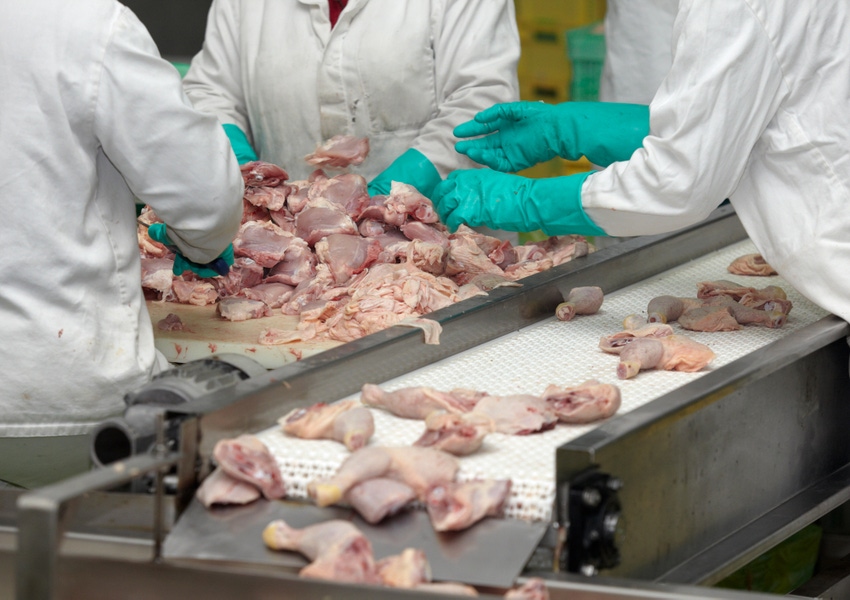Fresh meat hasn't been restocked as quickly as its been sold as consumers rush to grocery stores to stock up.

By Lydia Mulvany, Isis Almeida and Ed Ludlow
Meat companies are ramping up processing to help restock coolers that are being emptied by Americans on edge because of the spreading coronavirus.
Tyson Foods Inc., the biggest U.S. meat processor, is making its “most-significant shift” ever to produce more chicken, beef and pork that’s favored by supermarket shoppers, rather than cuts that restaurants use. Employees are working through weekends to fill as many orders as possible.
Sanderson Farms Inc. said it is adding Saturday shifts at its five plants that process chicken for grocery-store customers, and is ready to convert two other plants to process more such birds. Pilgrim’s Pride Corp. and Perdue Farms Inc. are also working to accommodate the boom in retail demand.
As U.S. restaurants shutter amid efforts to stop the spread of the coronavirus, consumers are rushing to grocery stores to stock up on food and other staples. Fresh meat, along with dry and canned goods, toilet paper and hand sanitizer are among items that haven’t been restocked as quickly as they’ve been sold.
“Food stores in our tri-state area have been cleaned out of all poultry-related products due to the ability to freeze them,” said Brian Williams, senior vice president at Macquarie Group Ltd. in New York. “Product lines in the poultry space are being diverted to retail in lieu of restaurant capacity.”
The shift is important because 60% of Sanderson Farms’ business is focused on food service. On a call last week, Chief Executive Officer Joe Sanderson said the retail business is “extremely strong,” with the company “pretty well sold” at most of its plants.
Meat processors are also adding extra weekend shifts to get ahead of what might become a labor shortage at plants, said Russ Whitman, senior vice president at commodity researcher Urner Barry.
With the likelihood that school closures force some plant workers to stay at home, labor concerns are growing. The U.S. Department of Agriculture on Monday said plants will continue to operate staffed with federal inspectors.
“We have all seen how consumers have reacted to the evolving coronavirus situation,” the agency said in a statement. “It’s more important than ever that we assure the American public that government and industry will take all steps necessary to ensure continued access to safe and wholesome USDA-inspected products.”
The pork industry has already called for an expansion of guest worker visas to combat disruptions, and vegetable growers are in talks with the state of California as farms struggle with the harvest amid a scanter labor supply.
The run on protein at supermarkets is also helping support soybean meal, key ingredient in feed. That’s even as the slide in crude oil following the price war between Saudi Arabia and Russia hammered other commodities.
“This is one of the primary reasons as to why the likes of soybean meal and corn, to a lesser extent, are holding up better than other commodities akin to the energy complex,” Macquarie’s Williams said.
To contact the reporters on this story:
Lydia Mulvany in Chicago at [email protected];
Isis Almeida in Chicago at [email protected];
Ed Ludlow in San Francisco at [email protected]
To contact the editors responsible for this story:
James Attwood at [email protected]
Millie Munshi
© 2020 Bloomberg L.P.
About the Author(s)
You May Also Like

.png?width=300&auto=webp&quality=80&disable=upscale)

